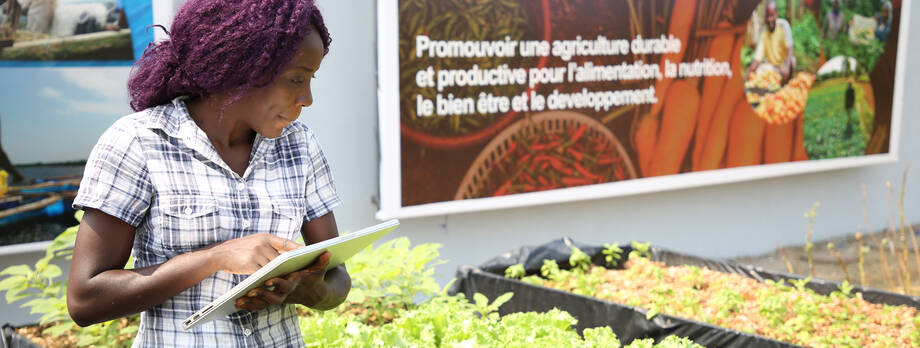Youth in Agriculture
Overview
In its Strategic Framework 2022-2031, FAO has identified youth as a critical theme across all of our work. In the Medium-Term Plan 2022-25 and Rural Youth Action Plan (RYAP), the Organization acknowledges the importance of youth as managers of our agrifood systems. As such, we must explicitly work with them to ensure inclusive economic development that is resilient to future crises and shocks, and contributes to realizing the Sustainable Development Goals.
Major projects
Opportunities for Youth in Africa
Developed jointly by FAO and the United Nations Industrial Development Organization (UNIDO), and implemented in collaboration with the African Union Commission (AUC), the Opportunities for Youth in Africa (OYA) programme answers the dedicated call made during the 2018 Conference on Youth Employment in Agriculture (held in Kigali, Rwanda) to accelerate efforts in job creation for African youth, primarily through agribusiness and entrepreneurship development.
OYA is operational in six pilot countries (Cabo Verde, the Democratic Republic of the Congo, Ghana, Kenya, Tunisia and Zambia) and aims to train 30,000 young people in agribusiness skills, create or support 600 youth-led small-to-medium enterprises (SMEs), and build 60 public-private development and business partnerships.
Among other achievements, OYA has incubated over 270 agribusinesses through local incubator programmes in Kenya and Zambia, and delivered business development, digital and financial literacy skills to an additional 300 youth agripreneurs in Kenya, Zambia and Ghana. In partnership with the youth, OYA has completed detailed country assessments that have identified 17 priority value chains for future investments in the six countries. OYA also launched the Entrepreneurial Mindset Podcast, which showcases successful African entrepreneurial stories to raise youth interest in entrepreneurship and agribusiness.
The programme is currently deepening its investments in innovative practices such as micro-irrigation in production, value addition via processing, and digitally-powered access to national and regional markets for youth agripreneurs.
Integrated Country Approach (ICA)
Since 2011, FAO has implemented the Integrated Country Approach (ICA) to boost decent jobs for youth in agrifood systems. The approach emphasizes strengthening the capacities of national institutions responsible for agriculture and labour to promote decent rural employment, including through private-public partnerships and multi-stakeholder mechanisms. The current phase of the approach, primarily funded by Sweden, has supported five countries and multiple regional processes in Africa, Latin America and the Caribbean. It has successfully piloted and scaled up models for youth access to financing, training and mentorship (like the MIJA rural entrepreneurship platform in Senegal and the Youth Inspiring Youth in Agriculture (YIYA) initiative in Uganda), digital platforms (like the regional African Youth Agripreneurs (AYA) platform), and youth-inclusive policymaking and value chain development. In the last biennium (2020-2021), the programme supported over 35 institutions and 100 youth groups or organizations. It benefited around 1,700 youths through the pilot models and reached a further 4,000 through its digital platforms.
African Youth Agripreneurs (AYA) platform
The African Youth Agripreneurs (AYA) platform is an initiative supported by FAO and the East African Farmer Federation (EAFF) that encourages experience-sharing, networking and mentorship among young African agripreneurs, as well as access to tools and training. It contributes to the overall objective of supporting Africa’s youth to have meaningful and rewarding engagement in agrifood systems. The platform has brought together and engages over 3,000 young people across Africa.
Junior Farmer Field and Life Schools (JFFLS)
FAO has developed the Junior Farmer Field and Life Schools (JFFLS) methodology which is an innovative approach that trains vulnerable rural youth in agricultural, business and life skills to earn a decent living. It allows them to be active and contributing members of their communities. JFFLS has provided contextualized and practical support to over 25,000 young women and men in over 20 countries.

